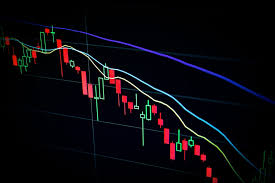
Understanding Market Sentiment in Forex Trading
In the world of forex trading, leverage is one of the most commonly used terms. But what exactly is leverage, and how does it work? In simple terms, leverage allows traders to control larger positions with smaller amounts of capital. However, like many things in forex trading, leverage can be a double-edged sword. While it can amplify potential profits, it can also amplify potential losses. Therefore, it is crucial for traders to understand how leverage works before using it in their trading strategy.
1. What is leverage?
Leverage is the use of borrowed funds to increase the size of a trade. For example, a leverage of 1:100 means that for every $1 of trader’s capital, the broker is providing $100 of capital. This gives traders access to a larger amount of capital to trade with, which in turn means that they can potentially make more profits. However, it also means that losses can be magnified, so traders need to be cautious.
2. How does leverage affect profits and losses?
Leverage has a direct impact on both profits and losses. When a trader uses leverage, their potential profits or losses are multiplied by the same factor. For example, let’s say a trader has $1,000 of capital and places a trade with a leverage of 1:100. This means that they are controlling a position of $100,000. If the trade moves in their favor by 1%, they will make a profit of $1,000. However, if the trade moves against them by 1%, they will lose $1,000. This illustrates the importance of managing risk when using leverage.
3. What are the risks of using leverage?
While leverage can potentially increase profits, it also increases risk. The higher the leverage, the more capital a trader can control, which means that losses can accumulate more quickly. Therefore, it is crucial for traders to have a solid risk management plan in place when using leverage. This can include setting stop-loss orders to minimize potential losses, and not risking more than a certain percentage of their trading capital on any one trade.
4. How do brokers regulate leverage?
Brokers have different policies regarding leverage, and it is important for traders to understand them before choosing a broker. Higher leverage may seem attractive, but it also increases the risk of losing more capital. Therefore, many brokers have instituted policies aimed at protecting traders from excessive leverage. For example, the US National Futures Association (NFA) limits leverage on major currency pairs to 50:1 for retail traders, while in Europe, the maximum leverage is capped at 30:1 under new regulatory rules.
5. Should traders use leverage?
The decision to use leverage ultimately depends on the individual trader’s risk tolerance and trading strategy. While leverage can increase potential profits, it can also increase potential losses. It is crucial for traders to fully understand how leverage works and to have a solid risk management plan in place when using it. They also need to choose a broker with a responsible leverage policy.
Conclusion:
Leverage is a powerful tool that can help traders amplify potential profits in the forex markets. However, it is also a double-edged sword that can magnify losses. Therefore, it is crucial for traders to fully understand how leverage works and to have a solid risk management plan in place when using it. They should also choose a reputable broker with a responsible leverage policy. With these precautions in place, leverage can be a valuable tool in a trader’s arsenal.